#education studies
Text
#Liverpool John Moores University#LJMU#IM Marsh Campus#higher education#undergraduate studies#postgraduate studies#professional courses#technical courses#Dance Studies#Sport Development#Physical Education#Applied Community Studies#Social Studies#Community Nutrition#Consumer Studies#Marketing#Food and Nutrition#Home Economics#Tourism Management#Education Studies#Outdoor Education#Adventure Tourism#OFSTED inspections#TTA category A status#PE secondary initial teacher education#Liverpool#LJMU popularity#quality teaching#personal tutoring#academic facilities
0 notes
Text
gentle reminder you can rise up from everything. you can recreate yourself. nothing is permanent. you are not stuck. you have choices. you can think new thoughts. you can learn something new. you can create new habits. all that matters is that you decide today and never look back.
#college#education#school#academia#note taking#student#study aesthetic#study blog#study inspiration#study motivation#study notes#study tips#studyblr#studyinspo#studyspo#uni life#university life#university#academic validation#chaotic academia#light academia#dark academia#motivation#motivating quotes#motivational quotes
2K notes
·
View notes
Text

......
#sorry college education...youre gonna have to wait...i have saw fuckshit to post to my tumblr blog at one in the morning#hoping if I think hard enough about saw itll cancel out all the studying im not doing#annyyyway#saw#saw 2004#saw 3d#saw fanart#chainshipping#chainshipping fanart#adam stanheight#adam faulkner stanheight#adam stanheight fanart#lawrence gordon#lawrence gordon fanart#saw franchise#my art
2K notes
·
View notes
Text
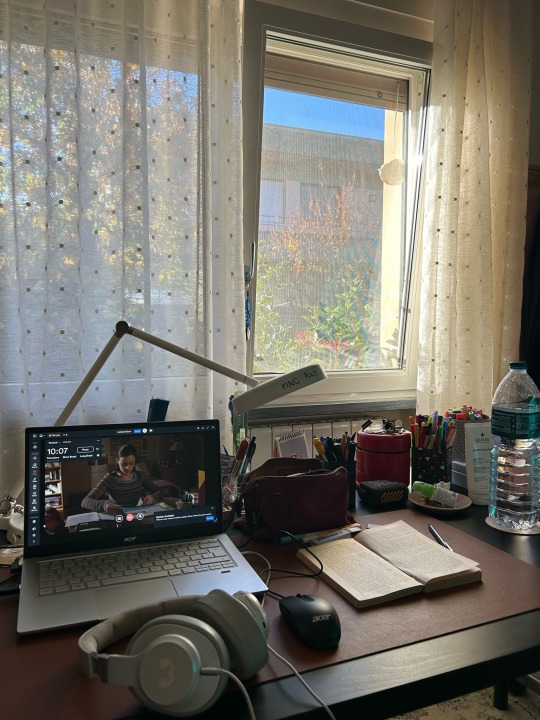
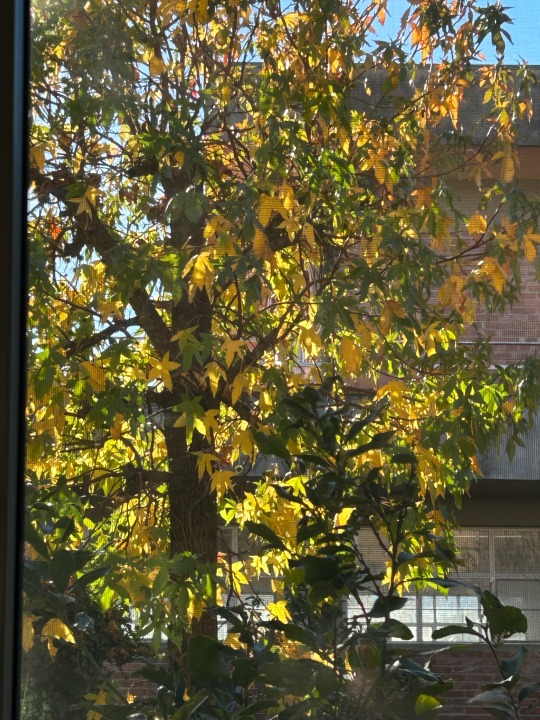

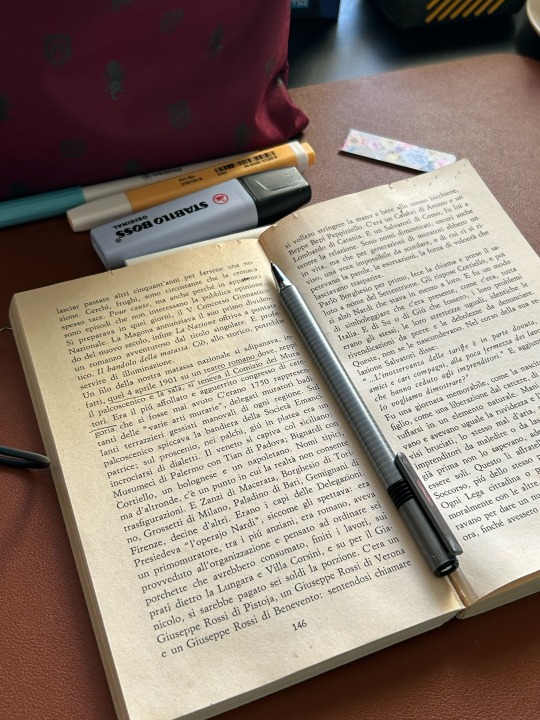
𝐅𝐢𝐧𝐚𝐥𝐥𝐲 𝐟𝐢𝐧𝐢𝐬𝐡𝐞𝐝 𝐭𝐡𝐢𝐬 𝐛𝐨𝐨𝐤. 𝐔𝐩 𝐧𝐞𝐱𝐭…𝐏𝐀𝐒𝐎𝐋𝐈𝐍𝐈!✨🎞️
𝐌𝐲 𝐛𝐞𝐥𝐨𝐯𝐞𝐝💕
#studyblr#study aesthetic#study hard#study inspiration#study motivation#student#studyspo#studying#education#light academia#dark academia#studyblr university#studywithme#study with me#study notes#uniblr#university#literature#books#pier paolo pasolini
1K notes
·
View notes
Text
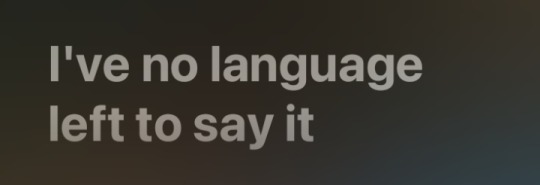

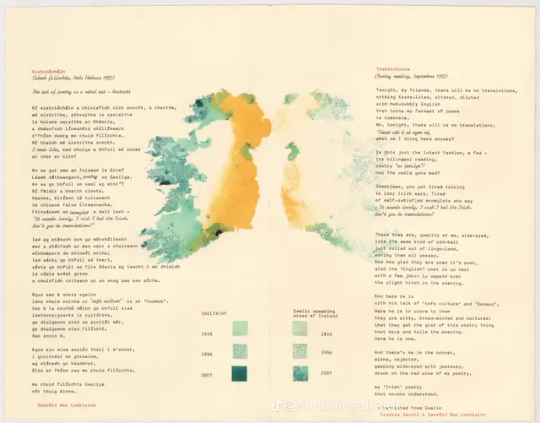


is it not a shame my native tongue is not mine?
#web weaving#webweaving#the human condition#a-study-in-bullshit#gaeilge#it upsets me#that i can barely speak any irish#a failure on both my part and the education systems but wtvr#it makes me sad#tá brón orm mar nìl mé abailta ag caint gaeilge nios fearr#idk if thats correct
1K notes
·
View notes
Text
Okay, look, I've been in college for two years and my Biology professor has pretty significantly rooted this educational science game called Labster into her course.
I was not expecting to be playing Portal all day for school.
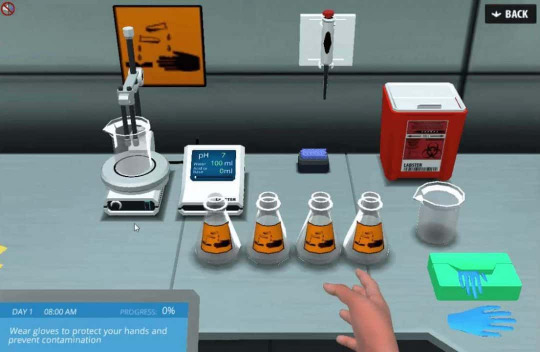

Yeah, this is a full, 360 sci-fi free roam lab environment that you can pretty much do whatever you want in. You know those cruddy flash game experiments you used to do in middle school? Those are a thing of the past.
And check this: the entire lab is being run by this super cool AI droid named Dr. One

She floats around and directs you around the lab depending on the lesson you're taking and sounds eerily similar to GLaDOS. It turns out that Dr. One also has a lore page and that she was created originally for "unethical purposes."
Also, this environment is extremely detailed and even runs shaders and ambient occlusion in your web browser.
That's pretty nuts, considering the only time we ever see these things are built into genuine video games, not a web browser lab. It runs incredibly smoothly on my GTX 1050.
This is insanely impressive and I actually enjoyed my homework today. 10/10, would play this in my free time.
#gaming#indie games#game development#education#biology#science#science side of tumblr#biochemistry#college#college tips#university#student#studying#college life#student life
2K notes
·
View notes
Text
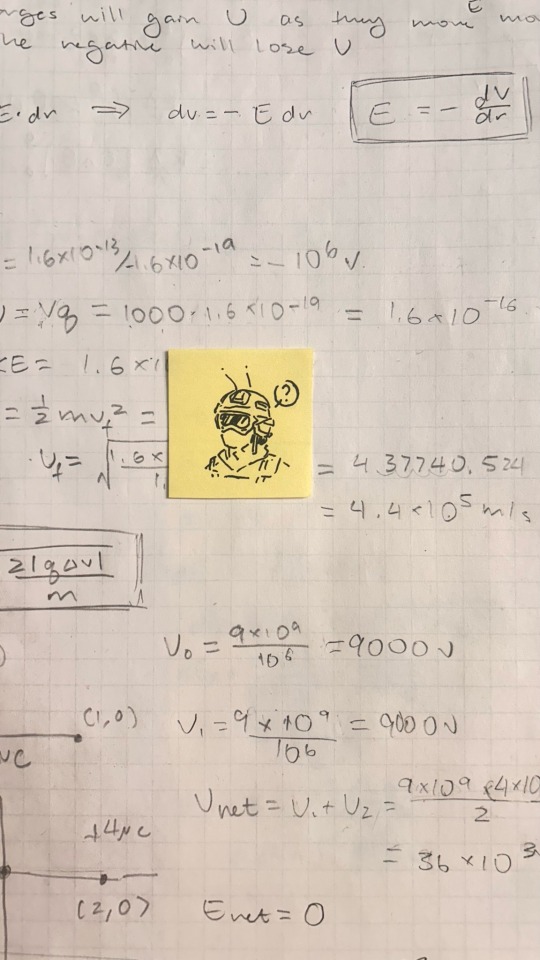
he don't get it either
#call of duty#cod fanart#gary roach sanderson#cod modern warfare#anii draws roach#aviiart#ugh not even more roaches in this school#what has American education come to#i should be studying but I just drew Gaz and Roach like 59 times instead
871 notes
·
View notes
Text

I just want to be beautiful and disgustingly overeducated ✨
#law school#study movitation#studyblr#studying#law#study blog#studyspo#law student#law studyblr#study aesthetic#studyinspo#study notes#study motivation#law stuff#student#university#education
666 notes
·
View notes
Text
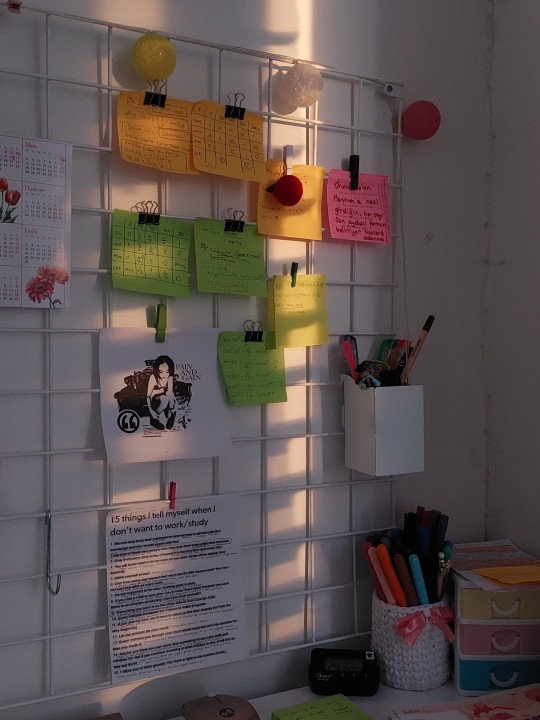
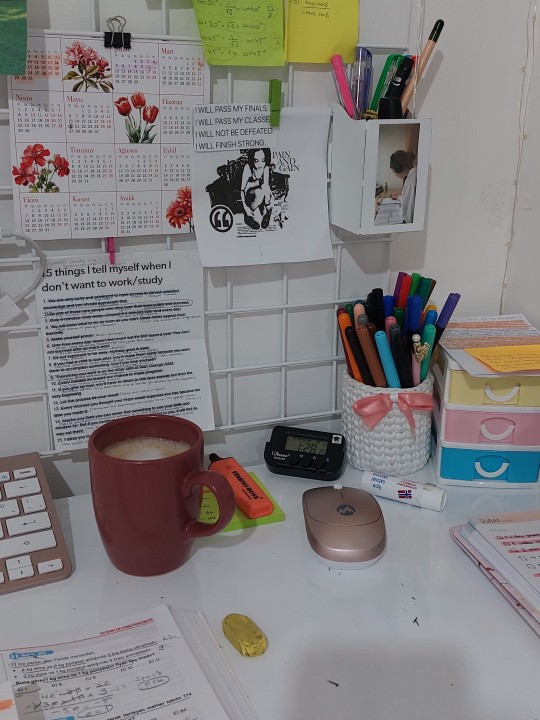


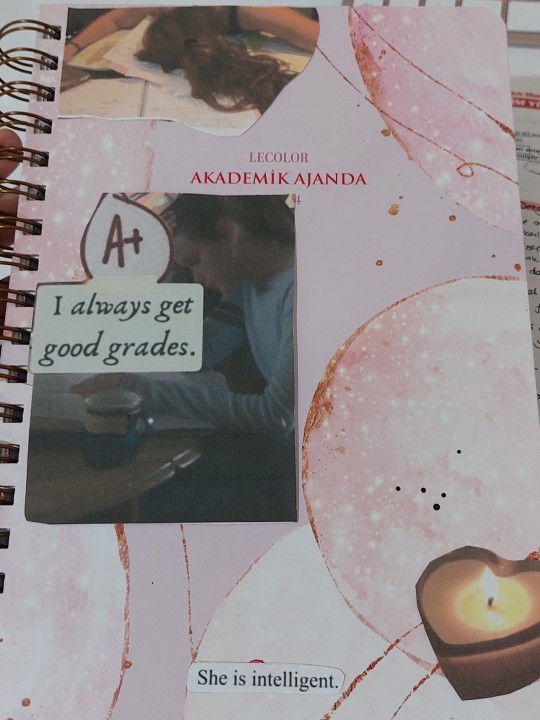
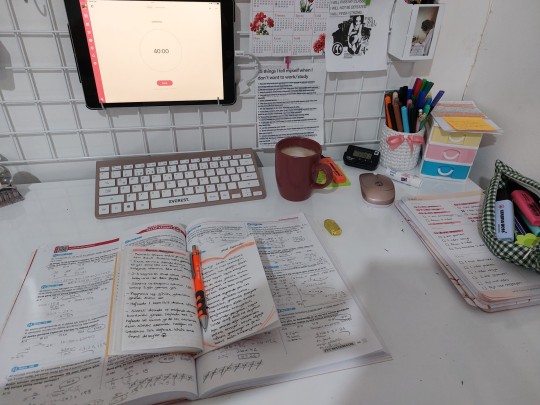
studying for hours on an organized desk while sipping coffee,
slow paced productivity,
beauty&brains...𓍢ִ໋🌷͙֒✧˚ ༘ ⋆。˚♡𓂃 ࣪˖ ִֶָ 𓈈
#aesthetic#study motivation#studying#studyblr#study space#lifestyle#studygram#student life#studyspo#study notes#my stuff#study session#studystudystudy#study blog#study aesthetic#study desk#desk inspo#desk setup#educate yourself#education#notes#study material#study motivator
839 notes
·
View notes
Text
Been thinking recently about the goings-on with Duolingo & AI, and I do want to throw my two cents in, actually.
There are ways in which computers can help us with languages, certainly. They absolutely should not be the be-all and end-all, and particularly for any sort of professional work I am wholly in favour of actually employing qualified translators & interpreters, because there's a lot of important nuances to language and translation (e.g. context, ambiguity, implied meaning, authorial intent, target audience, etc.) that a computer generally does not handle well. But translation software has made casual communication across language barriers accessible to the average person, and that's something that is incredibly valuable to have, I think.
Duolingo, however, is not translation software. Duolingo's purpose is to teach languages. And I do not think you can be effectively taught a language by something that does not understand it itself; or rather, that does not go about comprehending and producing language in the way that a person would.
Whilst a language model might be able to use probability & statistics to put together an output that is grammatically correct and contextually appropriate, it lacks an understanding of why, beyond "statistically speaking, this element is likely to come next". There is no communicative intent behind the output it produces; its only goal is mimicking the input it has been trained on. And whilst that can produce some very natural-seeming output, it does not capture the reality of language use in the real world.
Because language is not just a set of probabilities - there are an infinite array of other factors at play. And we do not set out only to mimic what we have seen or heard; we intend to communicate with the wider world, using the tools we have available, and that might require deviating from the realm of the expected.
Often, the most probable output is not actually what you're likely to encounter in practice. Ungrammatical or contextually inappropriate utterances can be used for dramatic or humorous effect, for example; or nonstandard linguistic styles may be used to indicate one's relationship to the community those styles are associated with. Social and cultural context might be needed to understand a reference, or a linguistic feature might seem extraneous or confusing when removed from its original environment.
To put it briefly, even without knowing exactly how the human brain processes and produces language (which we certainly don't), it's readily apparent that boiling it down to a statistical model is entirely misrepresentative of the reality of language.
And thus a statistical model is unlikely to be able to comprehend and assist with many of the difficulties of learning a language.
A statistical model might identify that a learner misuses some vocabulary more often than others; what it may not notice is that the vocabulary in question are similar in form, or in their meaning in translation. It might register that you consistently struggle with a particular grammar form; but not identify that the root cause of the struggle is that a comparable grammatical structure in your native language is either radically different or nonexistent. It might note that you have trouble recalling a common saying, but not that you lack the cultural background needed to understand why it has that meaning. And so it can identify points of weakness; but it is incapable of addressing them effectively, because it does not understand how people think.
This is all without considering the consequences of only having a singular source of very formal, very rigid input to learn from, unable to account for linguistic variation due to social factors. Without considering the errors still apparent in the output of most language models, and the biases they are prone to reproducing. Without considering the source of their data, and the ethical considerations regarding where and how such a substantial sample was collected.
I understand that Duolingo wants to introduce more interactivity and adaptability to their courses (and, I suspect, to improve their bottom line). But I genuinely think that going about it in this way is more likely to hinder than to help, and wrongfully prioritises the convenience of AI over the quality and expertise that their existing translators and course designers bring.
#alright getting off my soapbox now#apologies if this is not particularly coherent - i was very much working through my thoughts as I was writing#but yeah tl;dr i am not huge on LLMs especially for language education and am deeply disappointed by the way things are trending#anyways if anyone knows any learning tools that are similarly structured i'd appreciate the recommendation#being able to easily do a little bit of study on a regular basis helped me a lot and i've yet to find anything similar#duolingo#language#language learning
457 notes
·
View notes
Text
playing fallout new vegas and having to listen to caesar complaining about travelling and getting to study the languages of various communities living in the wasteland and calling it a waste of time while irl the humanities are constantly disregarded and getting a higher education and opportunities to study anthropology hands-on costs tens if not hundreds of thousands of dollars and requires so many connections and he was just getting that FOR FREE from the followers but that wasnt cool enough for him so he decided to use the education he was given to start his little fascist larper group and enslave people

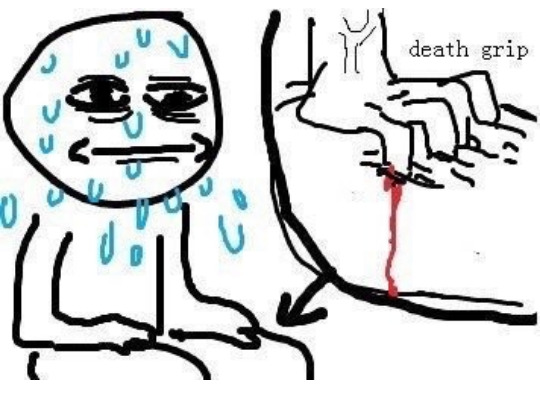

#the followers are so fucking cool man#the way they just take in jerry the punk without needing any money or like references or anything. and can make him an archival assistant#like aside from being anarchists and stuff the way they just openly and freely share as much of their knowledge theyve preserved#thats what makes them so cool to me#considering that in todays world education like that is so fucking expensive#and knowledge is only appreciated when its seen as 'useful' and exploitable like stem studies#i wanna be an anthropologist man#fnv#followers of the apocalypse#fallout new vegas#fallout#caesar fnv#caesar's legion#talking
2K notes
·
View notes
Text
ttrpg research study survey!!
howdy yall!!
so a lot of yall know me for my games, but by day i'm a grad student studying game studies and researching therapeutic applications for gaming (if you've seen my posts about using ttrpgs in my classroom, you may be familiar already!)
i'm doing a research study through my university looking into long term tabletop roleplay and emotional resilience. essentially, i'm asking the question: does playing tabletop games over a long period of time affect your ability to weather social and emotional challenges? the study is additionally interested if marginalized people have a different experience with roleplay and resilience than non-marginalized folks do
the study will take place in a few stages. the first stage is a survey. there are screening questions to make sure all participants qualify, and then open, short-answer questions asking about both your experiences with roleplay and making characters, and also questions about emotional resilience. you're able to answer questions with little or more depth, depending on what youre comfortable with, or skip questions if you need to. this survey should take about 30 minutes, but depends on how in depth you go with your answers
the next stage is an optional follow-up interview. three participants will be selected after the survey is completed to take place in an opt-in interview, which will last about thirty minutes to an hour. there, we'll talk more in depth about your answers and also talk about the character(s) you've played
the survey will be open from 3/27/24 to 4/12/24
to qualify, you must be a tabletop roleplayer who has played at least 3 roleplay sessions of a multiplayer ttrpg during a span of 6 months or longer. you must be 18 or over and an american citizen
spreading the word or participating is greatly appreciated!!!
you can find the survey here!!
thanks so so much yall!!!
280 notes
·
View notes
Text
discipline is self care
self care isn't just face masks and bubble baths, it's also doing your assignment in advance so you won't pull an all nighter before the deadline, cooking at home instead of ordering out; discipline is an act of self love and care
#academia#college#education#note taking#school#student#study aesthetic#study blog#study inspiration#study motivation#university student#architecture student#study notes#study tips#studyblr#studyinspo#studyspo#self improvement#self care#discipline#university life#university#uni life
2K notes
·
View notes
Text
A Guide to Mastery: Finding Your Life's Work
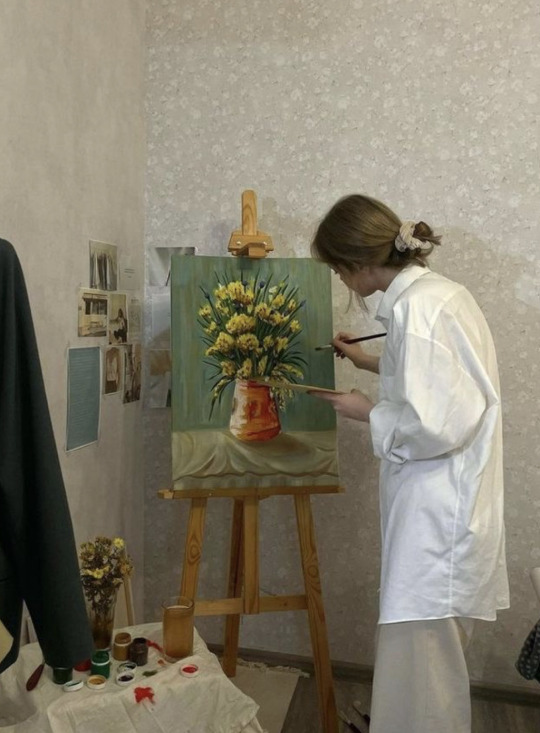


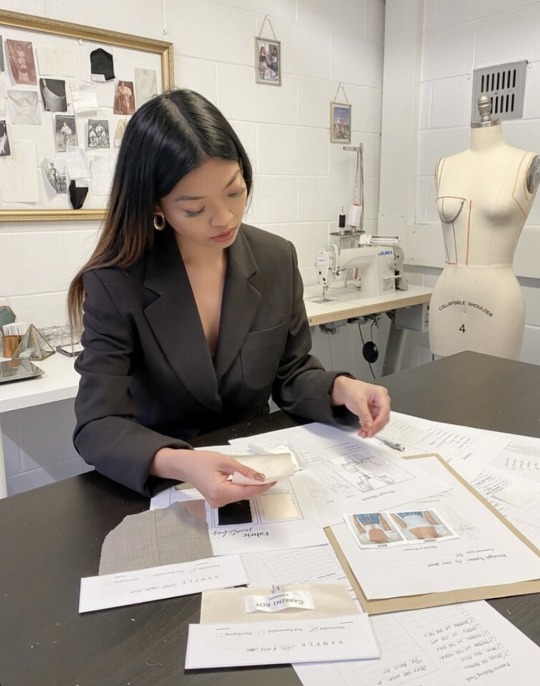
Mastery is what we hope to attain. We hope to get a point where we become master of our fields, experts of our work, and mentors to younger people. But the big question we ask ourselves is "what should I do?" "what can I do?" "what is my purpose in life?" and that is a very big question that we might spend our entire lives trying to figure out.
It is difficult now, especially when we hear people talk about their careers, we see updates on people's career changes on LinkedIn and everyone is vying for a job in big tech, big law, consulting, Wall Street and you feel left out, not good enough, in fact discouraged.
However, you can find fulfillment by taking this self-discovery one step at a time, at a pace that best suits your skills, and still rise to the top.
Here is how to find your Life's work:
Look back to your childhood
Often to figure out what you want to do or who you want to become you have to look back to your past, your childhood. What made you tick? What classes were most fun for you? Who did you enjoy watching or spending time with growing up? The answers can give you a peek into the kind of life you want. Growing up I enjoyed reading biographies of people. I was obsessed with how they became successful and how they set themselves apart - now my writing mirrors that.
2. Find your niche
The uncertainty or discomfort you feel could be caused by not fitting into one field. You feel like you can do a lot more than there is out there. This is a great feeling. if you feel this way do not be discouraged. It is your life's journey to figure out the intersection of your interest. It is a sign that you should try out multiple things. Your career may become an amalgamation of your interest, ideas, disciplines, and fields. Here are some intersections that I found in people I admire:
Design + Technology - Steve Jobs- Apple Co-founder, Brian Chesky - Airbnb Co-founder
Food + Technology - Apoorva Mehta; co-founder Instacart
Culture + Commerce - Most architects, designers fit this category
Science + Art - Trip Hawkins; founder of Electronic Arts
Community + technology - Whitney Wolfe Herd; Founder of Bumble
Food + business: Kaspar Basse; founder of Joe & The Juice
Sportsmanship + design - Phil Knight; co-founder of Nike
Environmentalism + Sportsmanship - Yvon Chouinard; founder of Patagonia
These people are at the top of their fields. You can start by having a double major, or minoring in a totally different field (Art + Finance, Biology + Sports management etc)
3. Resist the pressure of the majority
There is always a group of people on the other side of your interest and skills - parents, friends, professors, peers who want something different from what you aspire to. You love art but they remind you that the pay is meagre, you want be a lawyer but they tell you, you are not good enough for law. You see, the salary you get paid for doing something you love should not stop you from getting started. You will eventually become so good that the value you provide will eventually command a huge compensation but for now bend down and learn.
4. Find a mentor
Once you get a glimpse of what you feel like you want to do. Find a mentor, your mentor could be distant or imminent. A distant mentor could be a renowned expert, a person you stumble upon through a book, an interview etc. Their story inspires you and you somehow you feel seen, you goals aren't so impossible anymore. The imminent mentors are the people you meet through school, work and whose work has some skills you need to learn for your Life's work. Your relationship with them or experience with them is the closest to reality of your Life's Work. Learn as much as you can in this process.
Welcome to my A Guide to Mastery series inspired by the book Mastery.
#self improvement#self love#growth#mindfulness#self development#beauty#education#classy#self care#self help#study motivation#mindset#mind control#emotional intelligence#booklover#book review#biography#motivation#self discipline#self worth
666 notes
·
View notes
Text


𝐒𝐭𝐚𝐫𝐭𝐢𝐧𝐠 𝐚𝐡𝐞𝐚𝐝 𝐨𝐟 𝐬𝐜𝐡𝐞𝐝𝐮𝐥𝐞.🌟
#studyblr#study aesthetic#study hard#study inspiration#study motivation#student#studyspo#studying#education#light academia#dark academia#studyspiration#study space#study#study with me#study notes#studyblr university#studywithme#uniblr#university
521 notes
·
View notes
Photo
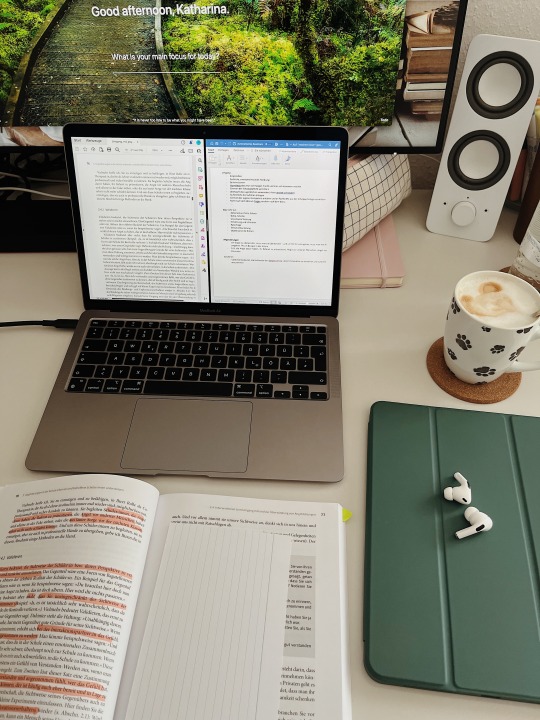
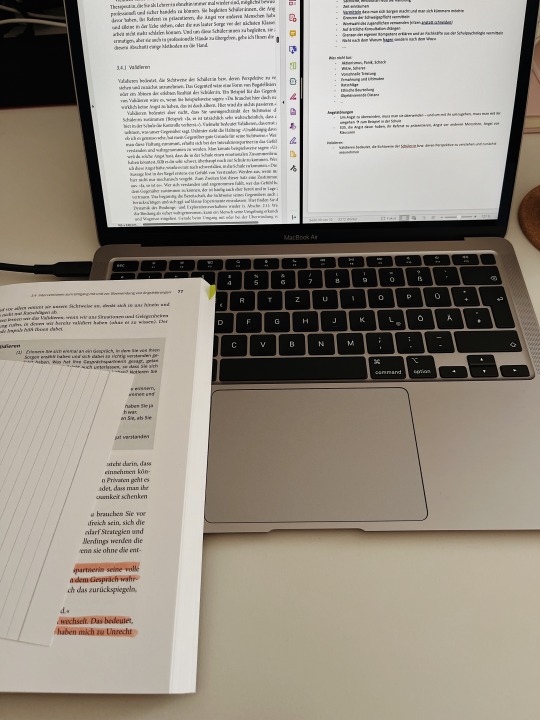
April 24, 2023 | 🐇
What I worked on today:
visited two of my students at their internship (and got lost doing so)
studied for my pedagogy exam
studied for my English didactic exam
wrote a couple of E-Mails
Currently reading:
- Icebreaker Hannah Grace
- You have a match Emma Lord
#MYPOSTING#studyblr#educhums#study#study inspo#studying#teaching#teacher#referendariat#lehramt#education major
1K notes
·
View notes